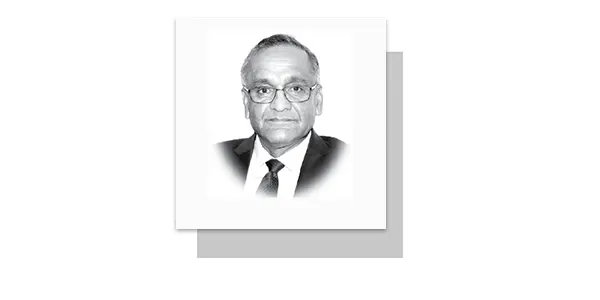FAR-right extremists – no matter where in the world they exist – have one feature in common. They try to re-write history in a way that helps advance their extremist agenda and sell their otherwise unsellable narrative. They create new heroes and new villains to paint a picture of past events that – to an unsuspecting audience –justifies an extremist point of view. A populist narrative of history built by extremist ideologues invariably involves cherry picking and distortion of facts, glorification of some and vilification of others. What makes their job easy is the fact that history and its personalities are never black and white, nor is there a single interpretation of the recorded facts.
BJP came into power with its Hindutva driven agenda in 2014, and with that surfaced a debate on Mughal history. Mughal emperors came under increasing scrutiny and criticism. Emperor Aurangzeb became the prime target of their vilification campaign. That continues systematically and continuously. In recent years, Indian politicians have been using Aurangzeb as a metaphor of tyranny and an icon of Hindu-suppression. Modi himself has repeatedly criticized Aurangzeb, for what he calls his “atrocities” and “terror”; one who tried to change civilization with his sword and to crush culture with his fanaticism. In the same breath he glorifies Hindus for their resistance to Aurangzeb and other Muslim rulers. Such statements by Modi and other BJP leaders stoke a strong anti-Muslim sentiment. In 2022, Agra Mayor called Aurangzeb a “butcher” (a word which has different meanings in Modi’s hometown Gujarat) and suggested that all his monuments and symbols should be removed from public places. At one point, Aurangzeb tomb had to be closed to tourists after a barrage of hate comments about him on Social Media.
BJP’s policy to erase and vilify Muslim rulers has been a multi-pronged one. A major step in that [wrong] direction of rewriting the history narrative was the massive changes in the textbooks. Portions on Mughal emperors were removed as were those about Delhi Sultanate rulers (including Mamluks, Tughlaqs, Khiljis and Lodhis). These steps were noticed and criticized by the major media houses in the world including Al-Jazeera, BBC, DW and Guardian. Academicians inside India were no exception either. Prof. Aditya Mukherjee at History Department of Jawaharlal Nehru University warned that such erasures of a particular community from our history are usually followed by genocide of that community. Not to forget that India has a huge Muslim population.
Avoidance of scholarly discourse and discussions is another characteristic of writing a “purpose made draft” of history. That is so because populist version created by the extremist ideologues is easy to sell to a politically charged audience to create polarizations, but it does not stand the test of historical records and scholarship. In the context of BJP’s vilification campaign against Aurangzeb, Audrey Truschke’s words are a good example to quote. Truschke is a scholar at Rutgers University, New Jersey, and has authored several works including a book, “Aurangzeb: The Life and Legacy of India’s most Controversial King”. Truschke has complained of Indian laws on legal review of books published in India. These laws forced her to delete several portions of her book from being published in India. In 2018, her scheduled lecture on “Unpopular Stories: Narrating the Indo-Islamic Past and Navigating Present-day Prejudices “in Hyderabad was cancelled by the organizers after people protested against her appearance.
By presenting Aurangzeb and other Mughal rulers as symbols of foreign oppression, the Modi regime is cultivating a narrative that projects Hindutva as a superior ideology and a natural response to centuries of [perceived] subjugation by Muslim rulers. That version of history views Muslims as the political heirs of oppressors and BJP as the political heirs of those who resisted their oppression. Picture so painted is sharply black and white.
The purpose of this particular article is not to comment on Aurangzeb’s policies nor does an Op-Ed provide enough space for critical or scholarly appraisal of Aurangzeb’s rule that extended over a vast empire and stretched over half a century; set externally against the powerful European Companies (British, Dutch and Portuguese), a not-so-simple neighbourhood of Empires and Afghanistan, and; a confronted internally with several forces set against the empire. What needs to be seen here is the phenomenon of creating a draft of history that meets the political ends of an extremist ideology and how it indirectly [but massively] supports BJPs policies to marginalize and disenfranchise a whole huge segment of Indian society.
How would a new narrative of history tailored by BJP ideology help Hindu nationalism and why is the Modi regime doing that in a structured way? Answer is simple and a familiar one in the history of far right extremist ideologies. Even though the object of the vilification campaign is the 17th century emperor, the target of BJP agenda is the 200 million Muslims in India. That narrative creates a sentiment of grievance and historical victimhood among Hindus. That victimhood extenuates acts of marginalization and disenfranchising Muslims who are viewed as the descendants of villains in history and the Hindu nationalists as the descendants of heroes. In Modi’s India vilification of Muslims of the past and marginalization of Muslims today have one gone hand in hand. Prof. Audrey Truschke said that Aurangzeb’s name was being used as “a dog whistle to signal that it is acceptable to hate and use violence against present-day Muslims”. I tend to agree with her point.
—The writer is former Special Secretary, Pakistan Foreign Ministry and former Ambassador to Nepal and South Africa.
(mazharjavedlahore@gmail.com)










